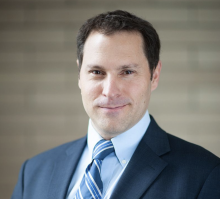Korbel ranked 12th best place in the world to earn a master’s degree in international relations.
Korbel ranked 20th in the world for the best undergraduate degree in international studies.
Korbel ranked 12th best place in the world to earn a master’s degree in international relations.
Korbel ranked 20th in the world for the best undergraduate degree in international studies.
Introducing Latin America Center Director - Oliver Kaplan

How do you see your work fitting into a Korbel Institute for Comparative and Regional Studies (ICRS) with a focus on labor, democracy, and the global South?
As a political scientist, comparativist, and latinamericanist, my research and policy work is directly connected to issues of justice, security, rights, and equity in the “global south.” The Latin America Center directly engages with these issues and convenes events and speakers to stimulate dialogues. My personal research agenda also touches on many of these areas. I am currently implementing a field experiment with a colleague at UT-Austin and the help of several Korbel students to study whether ex-combatants from the armed conflict in Colombia experience hiring discrimination in their searches for formal employment, and how to remedy any such bias. My primary line of research focuses on how communities can protect themselves from armed conflict violence. That research, spanning several countries, emphasizes the empowerment of communities in the “global south” through supporting their local democratic institutions as the foundation of their advocacy and protection (they can also pursue their autonomous development with great security and protection of their rights). As part of ICRS’s COVID-19 and Democracy project, we also convened an expert working group to produce a report on how the pandemic affected democratic trends in Latin America. At ICRS, I also run the Korbel Asylum Project to involve students in helping asylum-seekers from the Global South improve their chances at winning asylum based on sound research.
How does your identity and positionality shape your work as director of the Latin America Center?
We all have our own unique identities and cannot change where we come from. But we can recognize our unique backgrounds as individuals and what they imply for our interactions with others—including for academic dialogue and research. We can leverage such awareness for more respectful and productive engagements. I recognize that I come from a particular background with particular characteristics, as I am visibly a White cis-male from the U.S. and come from northern California in the U.S. I also have many other invisible aspects—opportunities, experiences, and challenges that I had to overcome—that shape who I am. My awareness of my positionality helps me understand how others view me and how I can bridge any social distance to connect with people of different backgrounds, whether they are students, research participants, government officials, or colleagues and friends. In my case, because I work a lot with residents of rural communities and activists in Colombia and elsewhere, I regularly interact with people who come from quite different places than I do. I have written several reflections on how positionality enters into my research. I also discuss how positionality enters into my “partnered” policy engagement process with local peacebuilders. By recognizing our differences we arrived at an even more impactful presentation of our insights on atrocities prevention (also in our forthcoming book on Responsible Policy Engagement).
What advice would you have to students, activists, and policymakers in terms of building solidarity between North and South?
Sometimes building solidarity can be challenging, not only because of physical distance but also because of cultural distance and differences in lived experiences. But building solidarity is definitely possible, and it has perhaps been the most rewarding part of my research and policy work. It begins with showing up, and being reliable and consistent. It involves focusing on and valuing relationships, and approaching people with respect. Perhaps most centrally, solidarity involves not only making contributions and supporting others, but also valuing and representing the contributions of others. To do this, one must have an open mind and listen to all voices, from wherever they may come.
Copyright ©2025 | All Rights Reserved | Equal Opportunity Affirmative Action Institution